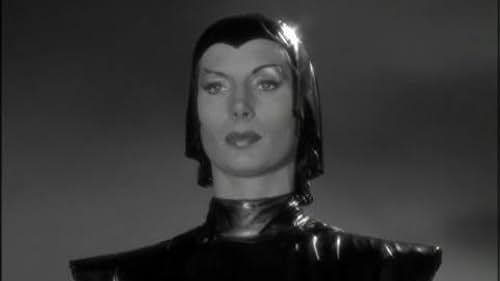Edwin Astley(1922-1998)
- Composer
- Music Department
- Soundtrack
Britain's most iconic and prolific composer of music for TV action/adventure in the 1950's and 60's was born in Cheshire, the son of a builder. He dropped out of school to work for a gas oven manufacturer at the tender age of fourteen. Music was in his blood and jazz was a particularly strong influence. Equally adept at playing and at composing/arranging, Edwin Astley began playing clarinet and saxophone for the Royal Army Service Corps while in his teens. After World War II, he joined a dance band, before long, fronting his own orchestra. Some time later, he moved to London to join a prominent music publishing firm as arranger for singers Vera Lynn and Ann Shelton. By 1953, Astley had also started in the film business (hired by the ever budget-conscious Danziger brothers), initially as a writer of incidental music.
Popularly, he first attracted attention with his nine-note fanfare introducing The Adventures of Robin Hood (1955) (though the actual theme song was written by American Carl Sigman). This inaugurated Astley's advancement to composer of scores for A-grade feature films (The Mouse That Roared (1959), The Day They Robbed the Bank of England (1960), The Phantom of the Opera (1962), etc.), always preferring to work freelance, never under contract. In between writing operatic pieces and music for son et lumière performances, Astley tended to reserve his best work for television, beginning with the classic jazzy harpsichord theme for Danger Man (1960). This was followed by similarly evocative, syncopated themes for The Saint (1962), The Baron (1966), The Champions (1968) and Department S (1969) -- instantly recognizable music which all but defined television in the swinging sixties.
Britain's film industry declined in the decade which followed and Astley retired to Goring-on-Thames, a village in Oxfordshire. There, he spent his remaining years growing vegetables, building a summer house and a recording studio in his garage, boating on the Thames, playing golf and travelling. Until his death in 1998, he continued to dabble in composition, working with his son on arrangements of The Who and The Rolling Stones, as well as providing music (commissioned by such employers as Pan Am, BOAC and the British Stock Exchange) for documentaries, travelogues and educational subjects.
Popularly, he first attracted attention with his nine-note fanfare introducing The Adventures of Robin Hood (1955) (though the actual theme song was written by American Carl Sigman). This inaugurated Astley's advancement to composer of scores for A-grade feature films (The Mouse That Roared (1959), The Day They Robbed the Bank of England (1960), The Phantom of the Opera (1962), etc.), always preferring to work freelance, never under contract. In between writing operatic pieces and music for son et lumière performances, Astley tended to reserve his best work for television, beginning with the classic jazzy harpsichord theme for Danger Man (1960). This was followed by similarly evocative, syncopated themes for The Saint (1962), The Baron (1966), The Champions (1968) and Department S (1969) -- instantly recognizable music which all but defined television in the swinging sixties.
Britain's film industry declined in the decade which followed and Astley retired to Goring-on-Thames, a village in Oxfordshire. There, he spent his remaining years growing vegetables, building a summer house and a recording studio in his garage, boating on the Thames, playing golf and travelling. Until his death in 1998, he continued to dabble in composition, working with his son on arrangements of The Who and The Rolling Stones, as well as providing music (commissioned by such employers as Pan Am, BOAC and the British Stock Exchange) for documentaries, travelogues and educational subjects.































